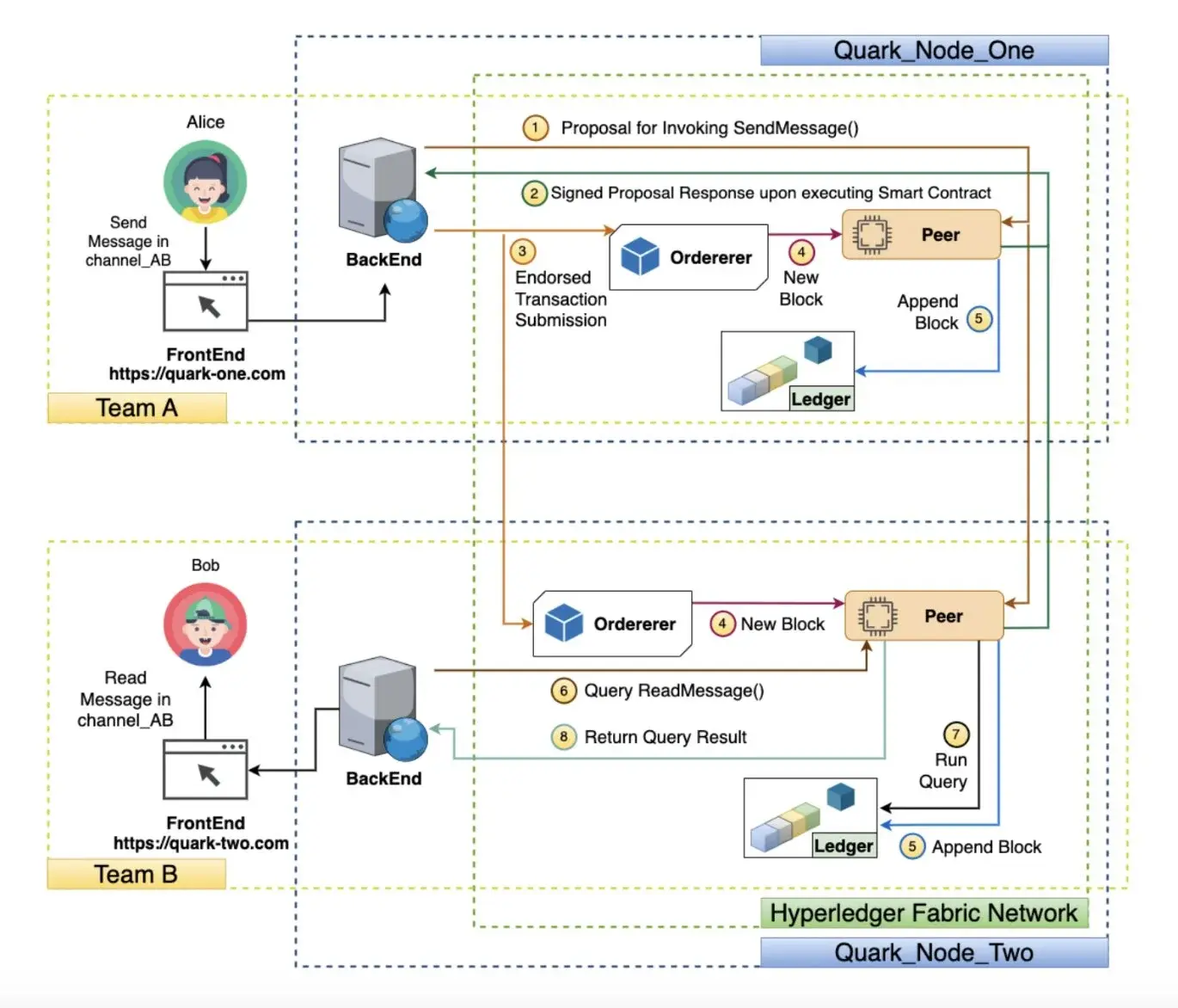Researchers from several institutes worldwide recently developed Quarks, a new, decentralized messaging network based on blockchain technology. Their proposed system could overcome the limitations of most commonly used messaging platforms, allowing users to retain control over their personal data and other information they share online.



The blockchain Is not public. It can only be accessed by nodes whose members are in the channel.
I’m curious whether without a blockchain there is a solution that (a) allows users to access all their encrypted messages even if any individual server goes down, (b) preserves a record of all communications/edits, and © is resistant to record tampering by a malicious server admin.
Removed by mod
Storing client side isn’t good enough, your records could be lost or destroyed. That’s why people use Gmail.
And it’s not just third parties, what about untrusted recipients? For example, how do you prove you sent someone a message on a decentralized system?
Removed by mod
Even if it’s encrypted, it can be lost or destroyed if it’s stored client side.
I know what identity keys are, but they don’t solve the problem. If someone says they didn’t receive your message, the best way to prove you successfully sent it is to use a distributed ledger.
Removed by mod
That doesn’t solve the problem. If you don’t get a read receipt, then you can’t prove you sent the message. And if the recipient doesn’t want you to be able to prove you sent a message, they can disable sending read receipts.
This sort of system is not meant for your use case. It is not meant for memes or other things nobody cares about. It is meant for people who need an auditable permanent copy of their communication.
For example, businesses sending orders, contracts, etc to each other. Or lawyers sending documents to each other. They need systems that are private, not susceptible to central server failure, yet nevertheless auditable in case of an untrustworthy recipient.
If a lawyer sends a time-sensitive letter to opposing counsel, the recipient must not be able to claim, “You did not send it to me on time”. Blockchain is a good solution for such needs.
Did you read the paper? This isn’t Bitcoin. The metadata is not available to the public.
Removed by mod
I just gave you one example of a use case. It’s hardly unique. There are plenty of time-sensitive messages sent in business settings, and plenty of people who don’t necessarily want to acknowledge receiving them.
More examples, off the top of my head:
Manager tells worker they need to cover an emergency on the weekend, worker claims they never received the message.
Business wants to cancel a work order, contractor shows up and says they weren’t properly notified of the cancellation.
Supervisor sends disciplinary note to employee before dismissal, employee says it was never sent and then claims wrongful termination.
And of course, this has nothing to do with email. So if you set up a “spam filter” that deletes your boss’s messages, that’s on you. They know they sent you the message, even if you delete it or otherwise pretend they didn’t.
This is about an independent audit trail, not “keeping logs”. Your personal email server doesn’t count, because you can alter the log to show whatever you want. Nobody is going to take your word for it.
Finally, it’s pretty clear you have no idea how this system is supposed to work, because you keep claiming that documents are “accessible by any third party”. You do understand that not every blockchain system is public, right?
So, federation across channel participants, but with blockchain instead of a “shared database”?
Yes, that sounds like their goal.
Blockchain is used to prevent a malicious participant from altering/corrupting records.